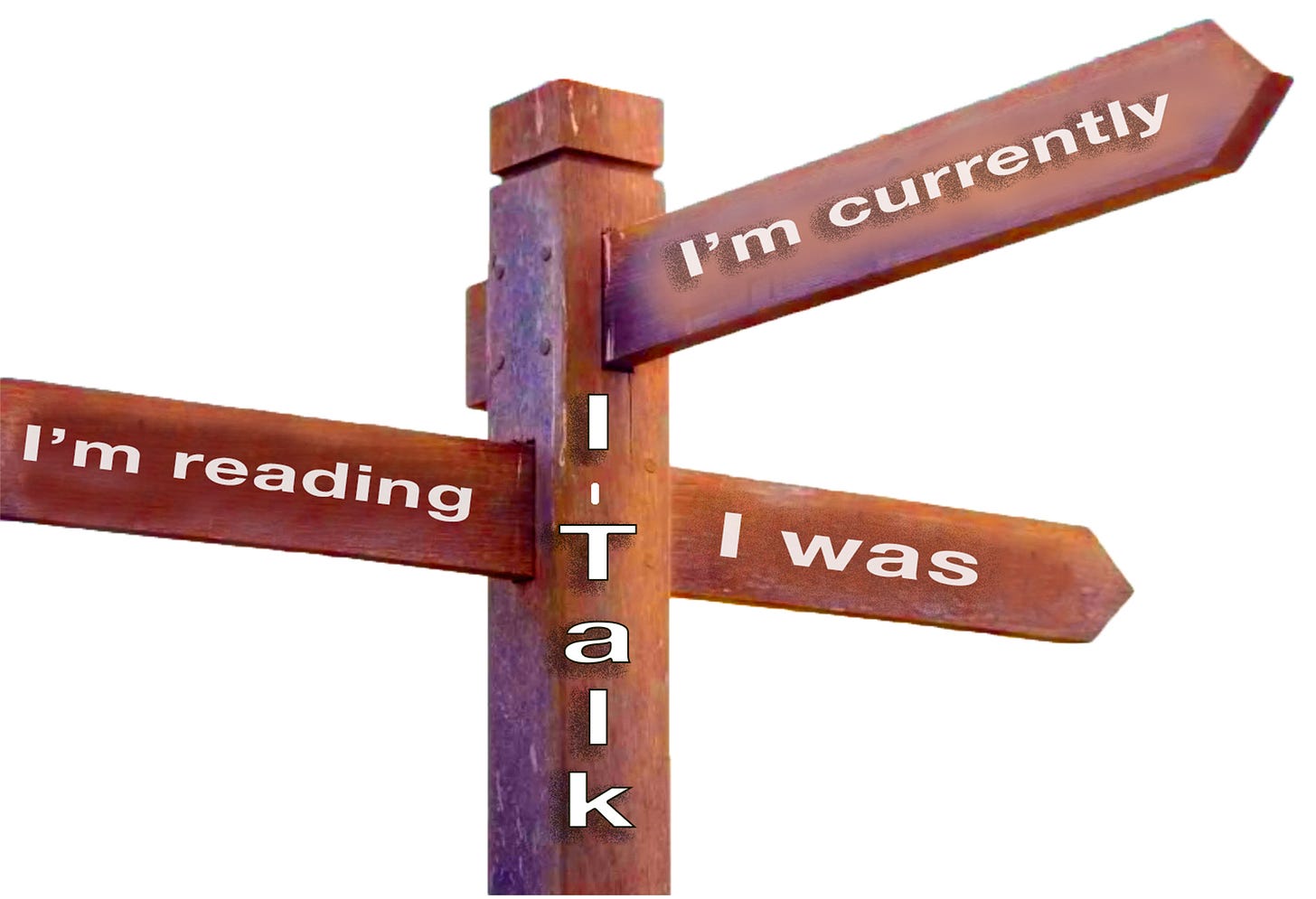ENTICE: Substack 2 word challenge
I-talk: Thinking about the smallest word in any writer’s dictionary
Newsletters live in the realm of personal communication, even when they focus on data and information: a dance between “I” and “You.” However, the lead, the reason for the newsletter, is “You,” otherwise we’re just writing a diary and hoping someone will peek over our shoulders.
We talk a lot about the power of first sentences … however, I’m wondering if the first two words are also an indicator of the direction to come. To get a better sense of how we begin our posts, I looked at the first two words (after the salutation, if any) of the newsletters backed up in my inbox and here’s what I found … a lot of what I’m calling “I-talk.” First the Substack newsletters;
I’m sharing
I’m reading
We were
I’m currently
The 1950s
One of
This week
There’s something
We are
One night
Prior to
Today, I
I was
My new
Quickly: Many
You might
Things feel
As I
I did
I wondered how I would fare on this same examination. Here’s my last 10:
When my
Many of
One lonely
YAY! Field
Substack Guides:
What an
I am
This year
Substack is
I was
The volume of “I-talk” surprised me (mine as well as others). Yes, this is a personal connection form of communication and we need to connect and build relationships. Yes, we need to write about and share our life lessons. Yes, we will inevitably use “I.” However …
Is there a message here?
Please … let us hear from some of you writing craft experts. Is this something we should be more conscious of?
Are the first two words we use somewhat like sign posts pointing us down a path? Not bad things; maybe just tools to sharpen and understand.
How about a challenge?
Look at your last 5 or 10 posts and note the two words that start them. What do you think about the power of those first two words … feel free to share some of your first two-word entries of a post that managed to skirt around the “I-talk.”
P.S. The non-Substack newsletters I receive do not seem to reflect this level of “I-talk. They are much more removed, perhaps because they are on more of a commercial path. Here are just a few examples:
Please find
There's something
Have you
After the
If someone
Before we
You might
In life
Every creator's
If the
Father Richard
Things feel
In the meantime … a word from Ray Bradbury:
"I am a dedicated madman, and that becomes its own training. If you can't resist, if the typewriter is like candy to you, you train yourself for a lifetime. Every single day of your life, some wild new thing to be done.
“You write to please yourself. You write for the joy of writing. Then your public reads you and it begins to gather around your selling a potato peeler in an alley, you know.
“The enthusiasm, the joy itself draws me. So that means every day of my life I've written. When the joy stops, I'll stop writing."





Thanks for playing and you're right, fiction writers are probably not going to lead with I-talk. However, I wonder if you might use the header function to lead with something a little more personal. Just looked at The Rubbing Alcoholic ;-) ... and thought what if the header was something like ... "The idea for this series came to me ..." giving them some insider detail or something else to fuel their fandom.
Without a
Compost is
Great soil
What a
The last
A very interesting exercise. I usually put myself in the first 2 or 3 sentences, but not right at the front. It's given me something to think about. I'm trying to put more of "me" into my writing, this is a great opportunity to do that. I'll experiment with the next few posts by leading with myself. Thanks for sharing your wisdom!